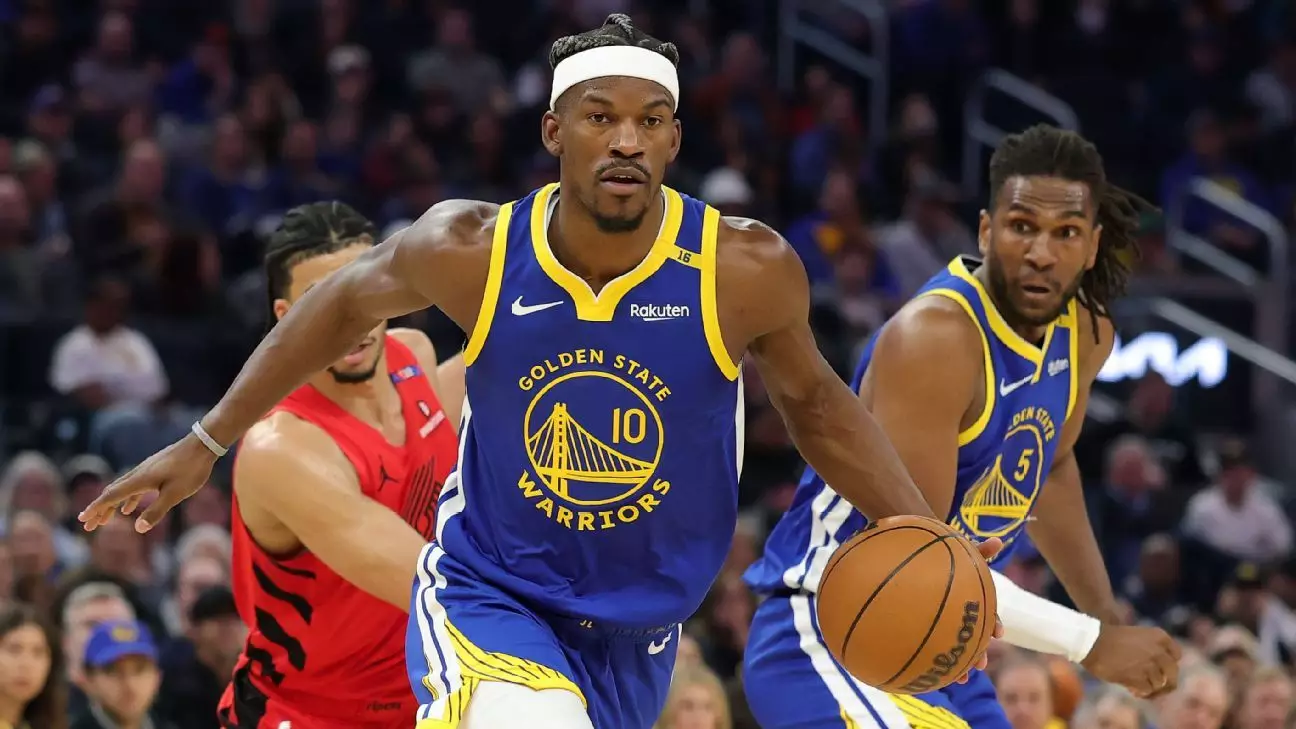In the world of professional basketball, emotional ties often intertwine with the competitive fervor of the sport. However, when it comes to Jimmy Butler’s return to Miami, where he once played a pivotal role, he appears unfazed. Despite the media hype surrounding his return to the Heat on Tuesday, Butler has publicly stated that this game will be “just another game” for him. This attitude encapsulates a mindset focused on the present rather than dwelling on the past—a critical approach for any athlete navigating the ever-shifting dynamics of team rosters in the NBA.
Butler’s dismissal of the emotional weight associated with returning to his former team can be interpreted as a testament to his professionalism and determination. His comments—a blend of casual indifference and focused ambition—underscore a mature perspective that prioritizes the game’s tactical demands over personal nostalgia.
Warriors’ Landscape Post-Trade
The transition from the Miami Heat to the Golden State Warriors is not just a change of jersey; it represents a paradigm shift in Butler’s career. The Warriors, despite suffering recent setbacks, have shown resilience with a record of 16-4 since Butler’s arrival. This transformation reflects Butler’s impact on the Warriors, a team that relies heavily on his scoring and playmaking abilities. The context becomes richer when considering the depth of the situation: the Heat, mired in a frustrating ten-game losing streak, have evidently struggled post-trade, underlining the tumultuous aftermath of Butler’s departure.
Statistical markers tell a harrowing story for Miami; they’ve been outscored significantly in crucial moments, particularly in the fourth quarter. This underperformance not only signals a crisis for the Heat but also highlights how vital it is for players to adapt quickly to new roles and dynamics following trades. The different trajectories of the teams since the trade illustrate the complexities that can arise when stars shift franchises.
Team Dynamics and Player Chemistry
For the Warriors, the impending matchup against the Heat transcends mere statistics; it carries the weight of relationships. Butler, alongside teammates like Andrew Wiggins, who also switched sides in the five-team trade, hints at an emotional undercurrent to their performance. Draymond Green’s acknowledgment of the stakes involved for both Butler and Wiggins indicates that this game serves as a battleground for proving their worth in new uniforms. The intertwining narratives of the players add layers to the competition, positioning the on-court event as not just a game but a reflection of their professional identities.
While Butler expresses a singular focus on team goals, he also subtly navigates the complexities of team dynamics—a duality that is key to success in the league. Winning games is paramount, but so is cultivating a sense of camaraderie and purpose within the locker room, especially during high-pressure circumstances.
Butler’s Legacy in Miami
When reflecting on his tenure with the Miami Heat, Butler acknowledges that the experience, albeit rewarding, fell short of the championship aspirations that fuel competitive athletes. His candid assessment, “We didn’t win nothing like we were supposed to,” serves as a raw reminder of the stakes involved in professional sports and the harsh realities of expectations versus results.
Butler’s time in Miami was marked by significant highs, including NBA Finals appearances, yet the overarching narrative of potential unfulfilled casts a shadow over his legacy there. This recognition of failure, while challenging, can be a powerful motivating factor moving forward. Playing against his former team becomes not only a chance for redemption but also an opportunity to redefine his role in a new environment—one that he seems eager to seize.
In a sport where narratives shift as quickly as the players themselves, Butler’s approach stands out. His firm focus on this next game as a step toward larger objectives showcases his readiness to embrace change while honing in on winning right now—a lesson that resonates deeply not only within the basketball community but across the realm of competitive sports.

